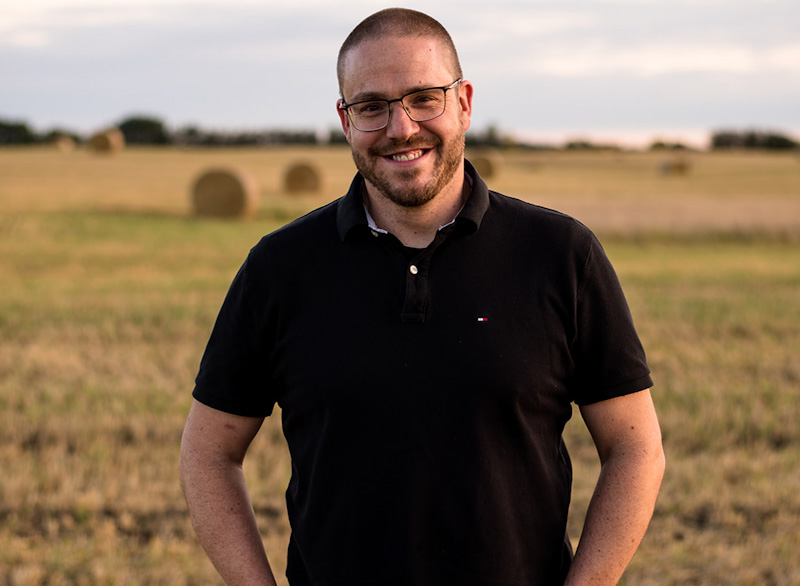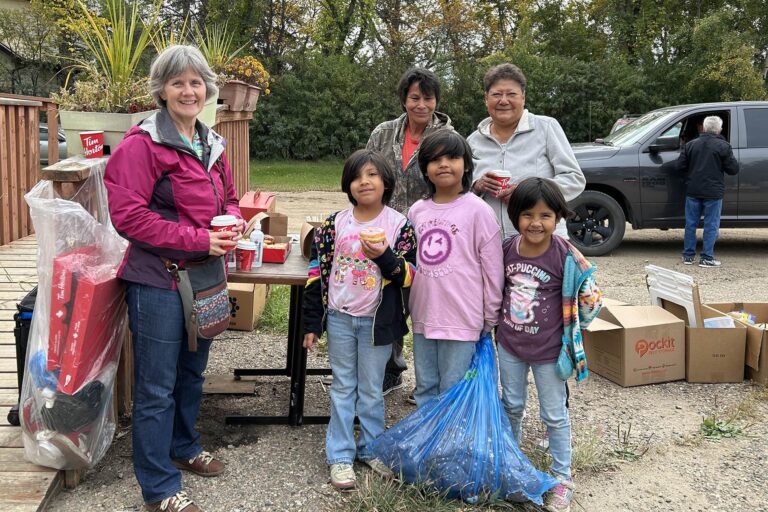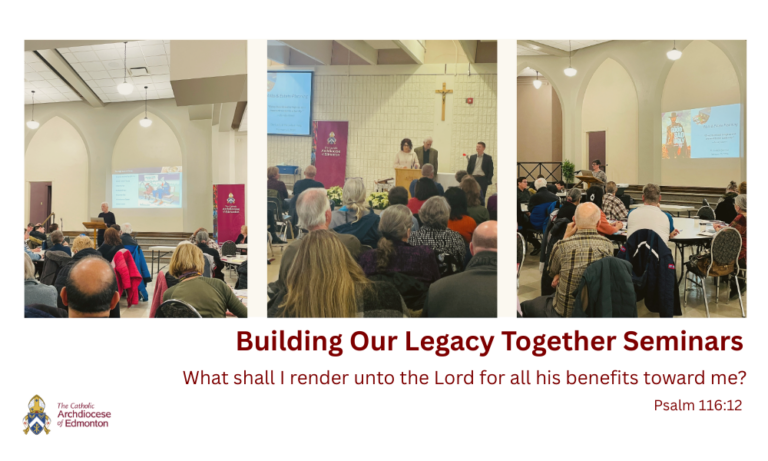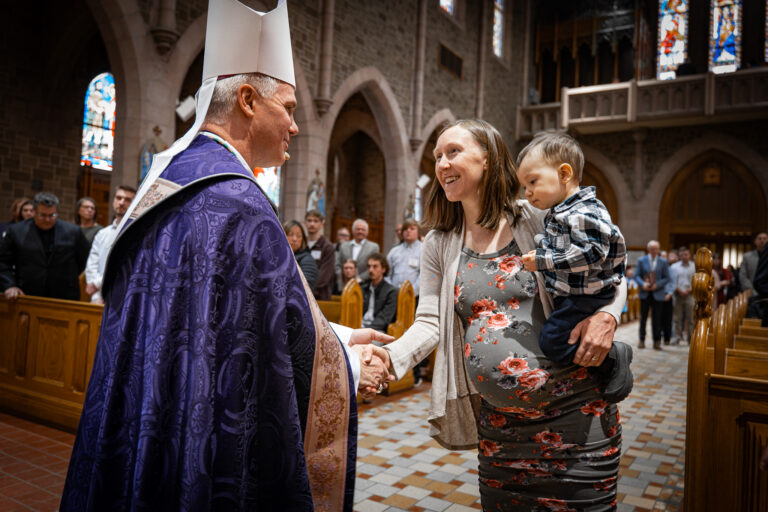One night in mid-November 2004, the pyramid at Edmonton’s Muttart Conservatory was empty except for myself and my girlfriend. Though there are many different types of plants featured in the arid pyramid, I wasn’t really paying attending to any of it. I had realized that this was the opportune moment I was waiting. It felt like my heart my beat out of my chest as I took a deep breath and began the speech I’d rehearsed countless times.
While I don’t know exactly what I said, I wound up down on one knee, holding out a ring as I asked her: “Jennifer, will you marry me?” Later that evening, it was time to share our joy with everyone else. Since text messaging hadn’t caught on yet and the main social media platform of the day was MSN Messenger (which we couldn’t access from our cell phones), we began to phone and tell everyone the exciting news.
Jesus’ last command to the disciples in the Gospel of Mark was all about telling people good news. He told them to “Go into all the world and preach the Gospel to the whole creation” (Mark 16:15). The word Gospel comes from a Greek word, euangelion, which means “good news” or “to bring good tidings.” In ancient Rome, this was often done to announce the birth of a child, and you might also say that this is what Jen and I did on the night we got engaged when we shared the news with our friends and family.
From a Christian perspective, this is precisely what Jesus asks of His disciples. He wanted them to share the glad tidings far and wide – and that’s exactly what they did. But that command was directed not only to those who were his eyewitnesses 2000 years ago; it is directed to us as well. Pope St. John XXIII puts it simply: “Every Christian must be convinced of his fundamental and vital duty of bearing witness to the truth in which he believes, and the grace that has transformed him.”
Note here that John XXIII didn’t say “every priest” or “every religious sister and brother” – he said, “every Christian.” Every Christian includes you (and me). You specifically have been called by God to preach the Gospel. And while your first reaction might be to share some excuses why you’re not an ideal evangelist, you simply need to look at those he called in throughout the history of our faith to see just who God calls to be His witnesses.
Moses murdered an Egyptian soldier (and wasn’t an ideal speaker), Jeremiah was too young, Gideon was afraid, Jonah ran from God, Peter denied Jesus, and Paul started off working against the Church. Whether it’s these, other biblical heroes, or the countless saints whom we find in every age of the Church – God called them anyway. And He calls us, too. We hear that same directive when we are sent out from Mass and told to “Go and announce the Gospel of the Lord” (or one of the other variations the priest or deacon will use to send us out on a mission.)
Beyond saying “yes” when Jesus calls, and the literal opportunities we might have to speak about our faith, there are three simple things we should all be working at to be better evangelists:
First and foremost, we need to be people of prayer. We need to remember whose witnesses we are, and that the work of evangelization isn’t all about us. Jesus told His Apostles that “…the Advocate, the Holy Spirit, whom the Father will send in my name, will teach you everything and remind you of all that I have said to you” (John 14:26). Having a consistent life of prayer will make us docile and aware of those moments that the Holy Spirit is prompting us to say (or do) something to share the faith. Certainly, we participate in the prayer of the Church at Mass each Sunday, but we need to also ensure that we commit to a habit of daily, personal prayer.
Second, we need to remember that our first means of evangelization is the way in which we live our lives. In the days of the early Church, Tertullian quoted what a Roman official said of the earliest Christians: “Look at how much they love each other.” This observation had much more to do with the lived witness of the Church than with the words they proclaimed. In more recent times, Mahatma Gandhi observed the opposite: “I like your Christ, I do not like your Christians. Your Christians are so unlike your Christ.”
Simply put, we need to work at the ways in which God is calling us to be saints in our day-to-day life. Are we doing all we can to love God? Are we doing what we can to love our neighbor and live a life of integrity? Are we making progress in our spiritual lives? All of this helps us to offer a lived witness of the good news we hope to proclaim.
Finally, we need to continually renew our understanding of this Good News. St. Peter writes that we should “Always be prepared to make a defense to anyone who calls you to account for the hope that is in you…” (1 Peter 3:15). We need to study and know our faith. This means spending time reading the Bible, studying the Catechism (or YouCat), taking in conferences and retreats, and soaking in the treasury of the faith that is available to us online.
You may know that Archbishop Smith recently launched a podcast. There are also numerous resources that are available to us within the Archdiocese of Edmonton, notably Newman Theological College and all of the programs that are offered to help us better understand our own faith. While there are many more worthy resources you might consider, three of my favorites are Bishop Robert Barron’s Word on Fire Catholic Ministries, the many resources and videos produced by Ascension Press (including Fr. Mike Schmidt’s well-loved “Bible in a Year” podcast), and the St. Paul Center for Biblical Theology. Whether you read, listen, or watch, I would encourage you to do so consistently and prayerfully so that you are well equipped to offer a clear witness to that “Good News” that sits at the center of our faith.
When I think back to that night I got engaged in November 2004, I didn’t have a big plan of how I would tell other people the good news (honestly, I was just hoping she would say yes.) But as we both made those phone calls, the words came easily.
Our part is to pray, to focus on living with integrity the life God has called us to (and to ask for forgiveness when we fall short), and to grow in our understanding of the faith. If we do these things, we can also trust that in the moments we need it, the Holy Spirit will inspire our words and our witness that we might live out our calling to proclaim the Gospel to the whole creation.
–Mike Landry is chaplain to Evergreen Catholic Schools west of Edmonton, and serves as an occasional guest speaker and music minister in communities across Western Canada. Mike and his wife Jennifer live in Stony Plain, Alta. with their five children.




